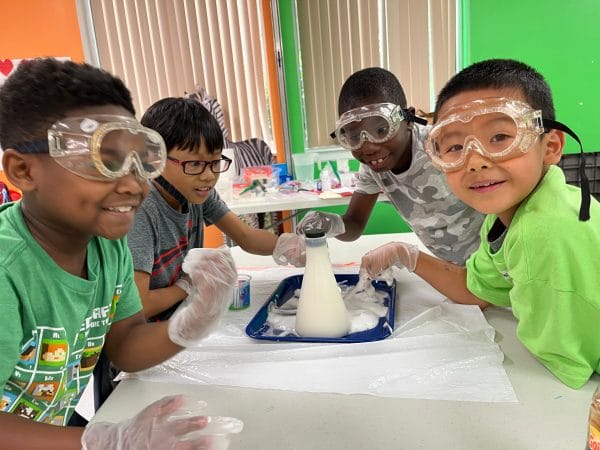Image Source: Google
In today's rapidly advancing world, the demand for individuals with strong critical thinking and problem-solving skills is higher than ever. As we look towards the future, it is essential for young minds to cultivate these abilities from an early age. One effective way to encourage the development of these skills is through STEM (Science, Technology, Engineering, and Mathematics) summer camps.
These camps provide a hands-on learning experience that not only teaches technical skills but also fosters essential cognitive abilities that are crucial for success in the 21st century.
The Impact of STEM Summer Camps
The best STEM summer camps (also known as "i migliori campi estivi STEM" in the Italian language) offer a unique opportunity for students to engage in immersive learning experiences that go beyond traditional classroom settings. Through a combination of interactive activities, real-world challenges, and teamwork, campers are able to enhance their critical thinking and problem-solving skills in a supportive and stimulating environment.
Benefits of STEM Summer Camps
- Developing critical thinking skills: Campers are encouraged to think analytically, evaluate information, and make informed decisions when faced with complex problems.
- Enhancing problem-solving abilities: By working on hands-on projects and experiments, students learn how to approach challenges creatively and find innovative solutions.
- Building resilience: Overcoming obstacles and setbacks during camp activities helps participants develop resilience and perseverance in the face of difficulties.
- Promoting teamwork: Collaborating with peers on group projects teaches campers how to communicate effectively, delegate tasks, and work towards a common goal.
- Encouraging curiosity: STEM camps spark curiosity and a passion for learning, inspiring students to explore new concepts and pursue further education in STEM fields.
The Role of Hands-On Learning
One of the key components of STEM summer camps is hands-on learning, which allows students to apply theoretical knowledge in practical ways. Through experiential activities such as building robots, conducting science experiments, and programming computer simulations, campers get a chance to see the direct impact of their actions and decisions.
Engaging Activities in STEM Camps
- Robotics workshops: Campers learn to design, build, and program robots to complete specific tasks, fostering creativity and problem-solving skills.
- Environmental science projects: Exploring environmental issues through fieldwork and data analysis helps students understand the importance of sustainability and conservation.
- Coding challenges: Introducing campers to computer programming languages cultivates logical thinking, attention to detail, and systematic problem-solving approaches.
- Engineering design challenges: By building structures and prototypes, participants learn about the engineering design process and how to iterate on their designs based on feedback.
- Mathematical puzzles and games: Solving math-related challenges in a fun and interactive way strengthens campers' numerical reasoning and logical deduction skills.
The Long-Term Impact of STEM Education
Participating in STEM summer camps not only benefits students in the short term but also has a lasting impact on their future education and career paths. By developing critical thinking and problem-solving skills early on, campers are better equipped to tackle the challenges of higher education and the workforce.
Preparing for the Future
- Academic success: Students who excel in critical thinking and problem-solving are more likely to perform well in school and pursue advanced degrees in STEM fields.
- Career opportunities: The demand for skilled STEM professionals continues to grow, with job prospects in areas such as computer science, engineering, and biotechnology expanding rapidly.
- Innovation and entrepreneurship: Individuals with strong problem-solving skills are more likely to become innovators, entrepreneurs, and leaders who drive technological advancements and economic growth.
- Global competitiveness: Developing a STEM-literate workforce is crucial for maintaining competitiveness in the global economy and addressing complex societal challenges.
- Lifelong learning: Cultivating a mindset of curiosity, exploration, and continuous learning prepares individuals to adapt to rapid technological changes and embrace new opportunities throughout their lives.
In conclusion, STEM summer camps play a vital role in nurturing the critical thinking and problem-solving skills that are essential for success in the 21st century. By engaging in hands-on learning experiences, campers not only develop technical abilities but also cultivate valuable cognitive traits that will benefit them in their academic, professional, and personal pursuits.
